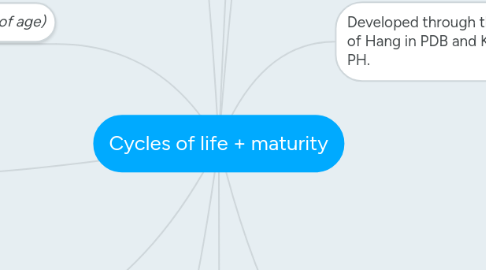
1. PBD: Hang matures greatly throughout the text by starting with having little personal voice to greater personal voice where she becomes more responsible and independent.
1.1. "Pungent with age" pg.14 //Possible foreshadow of the theme of ageing in the novel and the cycles of life coming through.
1.2. "No, I did not have anymore tears" pg 170 //Reflects the firm personality that Hang develops near the middle of the novel. The starting of Hang's truly remarkable personality.
1.3. "No one can replace a mother" pg 172 //Her voice is amplified by Duong as she no longer speaks in the first person, subjective manner but instead in a order-like manner.
1.4. "I was ranked one of the best students" pg 192 //This shows the excellency that Hang was able to achieve, but may not be the BEST but she was happy with being one of them, unlike Kambili that we see
1.5. "In life, you break at the moment of surrender, affected, you just go on" pg 231 // Hang gets philosophical and realises the circle of life and all its sorrow within. Then, as mentioned before, she enters the phase of 'no tears' and sucks it all up.
1.6. "I had to provide at least 30 dishes for the guests alone" pg 252 //This quote shows how Hang was able to be independent and take charge of catering to the guest's needs
2. Kambili's initial character
2.1. Quiet
2.2. Artificial (Puppet of Papa Eugene)
2.3. Forcefully Disineterested
2.4. Boring (Listening to every command, no individuality)
2.5. Passive
2.6. Isolated
3. Hang's initial character
3.1. Undecisive
3.2. Shy..?
3.3. Unspoken
3.4. No strong opinion
4. Kambili's post characterisation
4.1. Independent
4.2. Cheerful
4.3. Compassionate
4.4. Questioning
4.5. Conscious
5. Bildungsroman (Coming of age)
5.1. From child to adult
5.2. Duong does not explicitly tell the age of Hang but displays the implicit characters of a child to an adult
6. PDB: She grows up throughout the text in general to become a little older than she was in the beginning of the novel.
6.1. "I'm not going, I really don't care" pg 12 //reflects the childish behaviours of her personality in the beginning of the novel.
6.2. "Where is father?" pg 56 //Still reflects the childishness to some extent, knowing that her father is already gone and still longing for him to give sorrow to her mother (insensitive)
6.3. "I stood very still" pg 72 //Displays the characteristics of Hang and her phobia of skin touching from others.
6.4. "The violence in her voice made me jump" pg 113 //Reflects the childishness of her and the innocence of her personality of not being exposed to violence and unexpectancy.
7. PH: Kambili, alike Hang, develops the idea of having an independent self identity by the end of the novel
7.1. RED LIPSTICK!!
7.1.1. A symbolism that cannot be missed that represents individuality and start of the coming of age in PH. Ever since Kambili saw that Aunty Ifeoma uses red lipstick, she follows to bring individuality to herself with looking different from the norms of the society.
7.2. Father Benedict
7.2.1. An important character by Adichie to show the foreign influences of others to Kambili's development. Father Benedict becomes surprisingly, Kambili's first crush, looking at him in awe and such. Her crush for him and her belief in every word he says truly impacts her personal identity as she is influenced by him greatly, not just Papa Eugene and Aunty Ifeoma's family
8. Legacy
8.1. // = Post-script (Notes on the quote and such)
8.2. PDB= Paradise of the blind
8.3. PH: Purple Hibiscus
9. Developed through the characterisation of Hang in PDB and Kambili & Jaja in PH.
9.1. PH: In the beginning, Kambili has little self-pride and is full of shyness
9.1.1. "I'm sorry your figurines broke" 10 //Kambili has no tone when giving comfort to mama about her figurines
9.1.2. "It was good, papa" //The tone of Kambili's voice is bored/forceful since normally, she would elaborate on whats good and whats not. Additionally, this is the beginning of how she does not oppose anything that Papa does in the family
9.1.3. "I came second" 39 // Kambili is extremely depressed of her academic achievement of coming in second not because of her lack of studies but due to not being able to please Papa Eugene. Shows the oppression that Papa Eugene holds on her
9.1.4. "I'm not big" 51 //Here, as she is talking to her classmates and trying to make herself feel as small as possible, she says that she is not big. Even though, it is arguable that Adichie portrays her family as the biggest in the town, she honestly does not believe herself to be an important figure in the society and family.
9.1.5. "I was not sure what my laughter sounded like" 88 // Depicts how Kambili has not really enjoyed anything in her life as laughter is a symbol of happiness and Adichie uses her absence of knowledge of happiness to further emphasize the motif of oppression of individuality in Kambili
9.1.6. "I waited for Jaja to say no" 123 //Kambili has a set of rules in her mind that she follows to please papa Eugene and go according to his wishes or what he would have wanted. This further supports the motif of no individuality in Kambili and is almost a puppet of Papa Eugene.
9.1.7. "I muttered a word" 139 //The word choice 'mutter' brings an imagery of a shy person trying to say something but is afraid of having shut down by others
